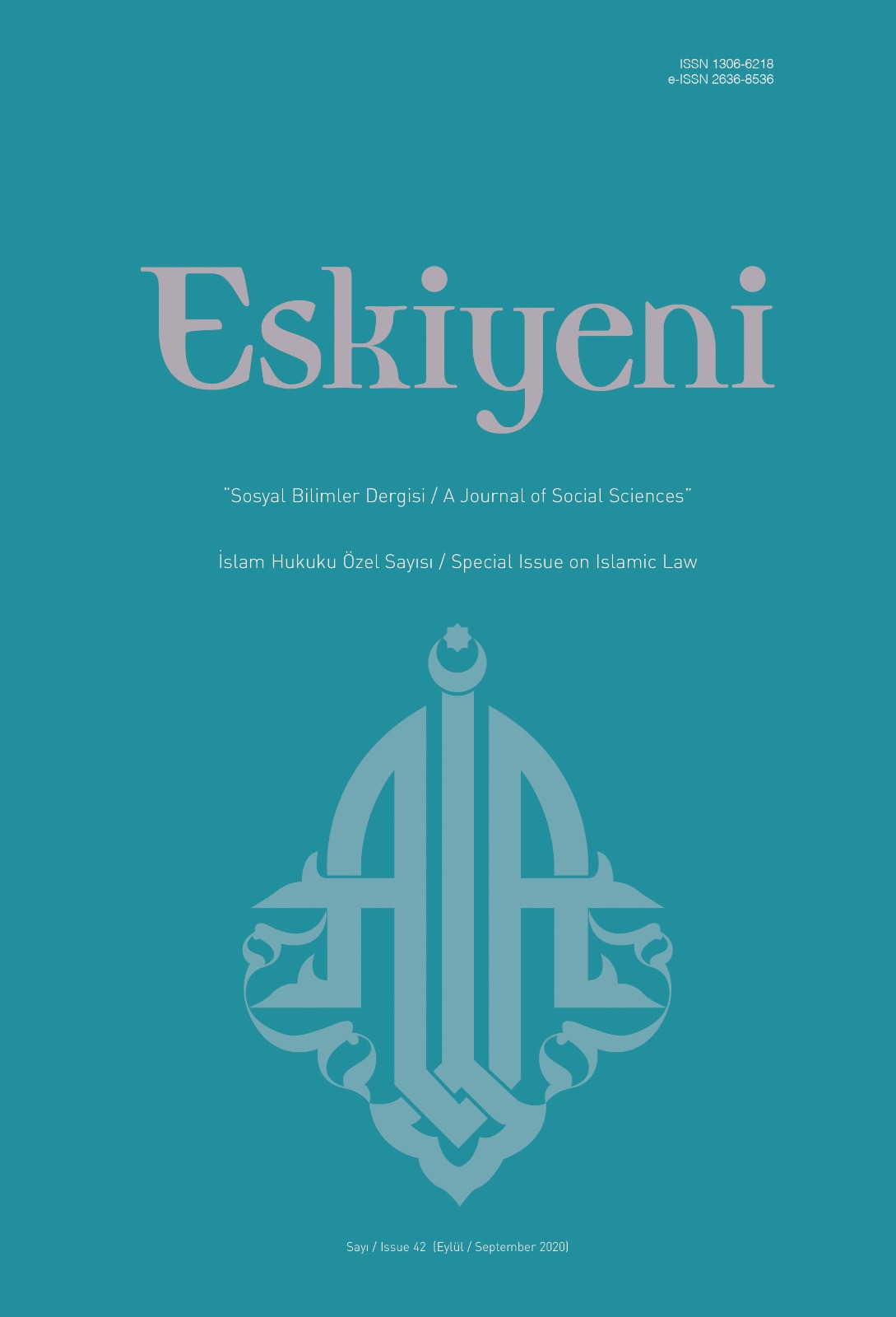Bakara Sûresi 183-185. Âyetler Çerçevesinde Ramazan ve Orucun İşârî Yorumu
The Fast and Ramaḍan in Ishari Commentaries in the Frame of 183-185th Verses of Ṣūrat al-Baqarah
Author(s): Adnan ArslanSubject(s): Literary Texts, Studies of Literature, Islam studies
Published by: Anadolu İlahiyat Akademisi
Keywords: Tafsīr; Bursawī; Baklī; al-Qushayrī; Ramaḍan; Fast;
Summary/Abstract: Undoubtedly, one of the worships that are the symbols of Islam is the Ramaḍan fast. Verses 183/184/185 of Ṣūrat al-Baqara which states the obligatory fasting of Ra-maḍan are interpreted by commentators (mufassir) within the framework of Islamic law discipline and the fiqh (Islamic law) terms of worship in question are determined in the presence of hadiths. The verses of fasting, which are accepted as law verses (aḥkām) have been interpreted in terms of fiqh as well as by tafsīr scholars who are members of the school known as Ishari commentary (sufi interpretation) in the tafsīr literature. The Ishari commentaries have emerged from the idea that the verses bear signs of hidden meanings other than their literal meanings. In these commentaries, the subjects such as Ramaḍan, fasting, seeing the crescent, sickness and voyage are grippingly interpreted by Sufi-oriented commentators. In this study, how prominent commentators of the Ishari tafsīr school interpreted these verses were examined. Due to the fact that similar interpretations are repeated in commentaries, the explanations that we find more original have been chosen. According to these interpretations Ramaḍan is a sign of the life of the human being, seeing the crescent moon is seeing (ru’ya) of the God, and the state of illness and voyage are signs of the states that happened to Sufi during the course of his life. It is stated that a fast in the sense of staying away from the things determined by the fiqh is “the fast of the common people”, and the fasting of the people called havâs (special) is not only eating/drinking but also avoiding all prohibited things. According to these interpretations repeated in many tafsīr, the fast of the tongue is to stay away from lies, prostitution and backbiting. The fasting of the eye is not seeing in case of heedlessness and doubt. The fast of the ear is to clog the ear against the things that are abrogated. The fasting of the soul is to restrain hopes, ambition and lust for the future. The heart also has a fast. His fast is to turn away from the adornment and love of the world. The soul’s thing is not to seek the flavors and bounties of the hereafter. The fasting of the secret (sir) is that refrains from seeing the body of anything except God. Based on the idea that the verse can have deep meanings beyond its apparent meanings, interpretations corresponding to the terminology of Sufism have been made. In fact, the illness and travel situations that are stated as an excuse for not fasting have found their way into the signs in the ishari tafsīr. According to these interpretations a person may be interrupted and disrupted in his spiritual journey from time to time; It may lose enthusiasm and fall into slack humanity. While he is in the pursuit of truth, he may sometimes get tired of the weight of the maqāms (spiritual paths) he follows and show helplessness. In this case, it is his duty to show patience in the face of the futuristic state of affairs until his grace comes to the rescue and rest for a while on his journey. When his heart is salvaged and the morbid states he was exposed to collapse, he can continue his journey, which he could not perform in the past or lagged behind; can make up for the past. It can be said that this interpretation made by the commentator is actually a guide not only for Sufism and sufis but also for all believers. Because the journey to become a perfect Muslim is a bumpy campaign that will continue until the last breath. Surrounded by ascension and descent, spiritual illness and helplessness, the journey of truth is of course not monotonous. In that case, as indicated above, when a believer is at ease for pleasure and pleasure, he should engage in futility, seize the opportunity, and hang with all his might on the oars in the sea of truth. However, on the contrary, when he is exposed to forbidden and spiritual illnesses, he should not be redhanded eating, and he should be satisfied with the fards until he reaches the help of grace and heals. As far as we can see, these comments will contribute to the more conscious fulfillment of fasting, which is an important principle of the religion of Islam. The interpretations that confirm the prophetic warning in the hadiths are stating that fasting does not consist of being hungry and thirsty adds different dimensions to it. On the other hand, today it is highly probable that the source of some of the quotations and exemplary narratives among Muslims about Ramaḍan and fasting today is the comments in these ishari commentaries. Therefore, with these interpretations that add depth and influence to the understanding, we believe that the fact that Ramaḍan and fasting have deep meanings beyond starvation is reinforced. As a result, the study makes a recommendation for other field researchers. That is the issue of making separate studies with the commentaries to be brought together in the context of a certain subject in the ishari commentaries. This is because many impressive interpretations -fiqh-ı bâtın- are scattered in these commentaries on the point of interest of the general reader. We are of the opinion that compiling and explaining them under a specific topic will be beneficial especially against the moral degeneration we have been suffering recently.
Journal: Eskiyeni
- Issue Year: 2020
- Issue No: 42
- Page Range: 1007-1027
- Page Count: 21
- Language: Turkish

